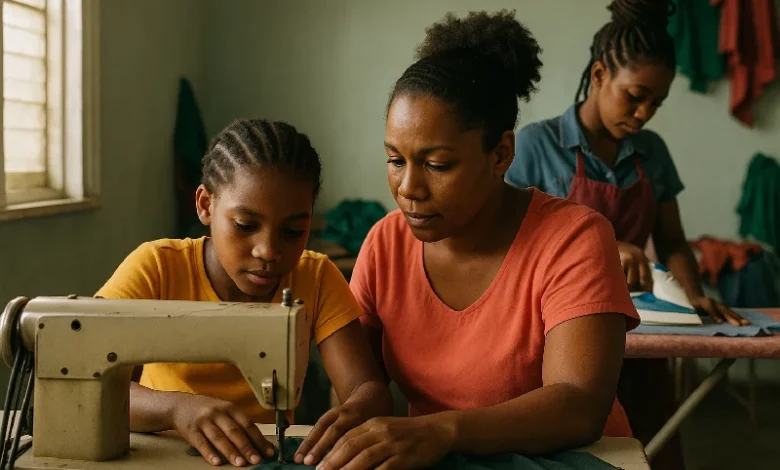Employment of Women, Young Persons, and Children Act of Dominica

The Employment of Women, Young Persons, and Children Act (Chapter 89:04 of the Revised Laws of Dominica) is a pivotal piece of legislation governing labor standards for vulnerable demographics in the workforce. Enacted to align with international conventions on child labour and fair working conditions, this law provides a regulatory framework protecting women, minors, and children from exploitative or hazardous employment.
This Act defines critical terms such as “child” (under 14), “young person” (14 to under 18), and “woman” (of any age), setting out specific legal conditions under which each category may or may not be employed, with strong prohibitions and criminal penalties in cases of violation.
Prohibition of Child Employment
A central provision of the Act is the absolute prohibition of the employment of children under the age of 14. Section 3 makes it illegal for any person to employ a child in an industrial undertaking, including manufacturing, mining, construction, and transport. This extends to even assisting in such undertakings, whether the child is remunerated or not.
There are narrow exceptions: children may participate in light agricultural or domestic tasks within family settings, provided it does not interfere with schooling or pose a health hazard. This provision reflects Dominica’s commitment to international labor standards while recognizing the realities of rural livelihoods.
Regulation of Work for Young Persons
The law permits the employment of young persons (14–17 years old) in industrial undertakings, but only under strict regulations:
- Medical Certification: Young persons must present a medical certificate proving they are fit for the intended work.
- Working Hours: Employment must not occur during night hours (typically 6 p.m. to 6 a.m.) unless exempted under specific apprenticeship schemes.
- Hazardous Work: Young persons are barred from tasks deemed dangerous or injurious to their health, development, or morals.
- Rest Periods: They must receive adequate rest breaks and cannot be made to work continuously without a specified period of rest.
These provisions aim to balance access to vocational training and early employment while safeguarding health and education.
Employment of Women: Night Work and Maternity Protections
The Act restricts the employment of women in certain conditions:
- Night Work: Section 8 prohibits women from engaging in night work within industrial undertakings, again typically defined as employment between 6 p.m. and 6 a.m. Exceptions apply to managerial roles, health professionals, or specific emergency situations.
- Maternity Protection: Though maternity-related provisions are addressed more fully under the Social Security Act, this legislation emphasizes the broader principle that women should not be employed in conditions harmful to their health or that of their children, including shortly before or after childbirth.
Inspection and Enforcement Mechanisms
To ensure compliance, the Act empowers the Labour Commissioner and appointed inspectors to monitor workplaces, review records, and conduct interviews with employers and employees. Inspectors have access rights to industrial premises and can demand documentation proving the age of employed persons.
Failure to comply with the Act attracts penalties ranging from fines to imprisonment. Where a child is found illegally employed, both the employer and the parent or guardian may face consequences.
Recordkeeping and Age Verification
Employers are legally required to maintain employment registers that include:
- Full names and birthdates of workers
- Dates of medical certification (for young persons)
- Daily working hours and wages
In cases of doubt about an employee’s age, the burden falls on the employer to demonstrate that the individual is of legal working age. Acceptable forms of age verification include birth certificates, baptismal records, or school records.
Alignment with International Labour Conventions
Dominica is a signatory to the International Labour Organization (ILO) Convention No. 138 (Minimum Age Convention) and Convention No. 182 (Worst Forms of Child Labour). This Act serves as one of the domestic legal instruments used to uphold these international obligations. It ensures that no child is employed in work detrimental to their health, development, or right to education.
Relevance to Social Development and Education Policy
The legislation is crucial for the integration of labor, education, and child protection strategies in Dominica. By outlawing child labor and regulating youth employment, it supports the objectives of the Ministry of Education, Human Resource Planning, Vocational Training, and National Excellence. Ensuring that minors remain in school and are not prematurely drawn into exploitative labor markets is key to national development goals.
Furthermore, the Act contributes to poverty reduction strategies by ensuring young people are given opportunities for decent, safe, and rewarding work under proper supervision.
Policy Gaps and Recommendations
Despite its strengths, the Act could benefit from:
- Updated Age Definitions: In line with current international best practices, “child” should be clearly aligned with the UN Convention on the Rights of the Child (under 18).
- Expanded Maternity Protection: More robust protections specific to pregnant and nursing women in non-industrial sectors would close legislative gaps.
- Modernized Terminology: Terms like “young persons” and “industrial undertakings” could be updated to reflect modern economic realities in the service and gig economies.




